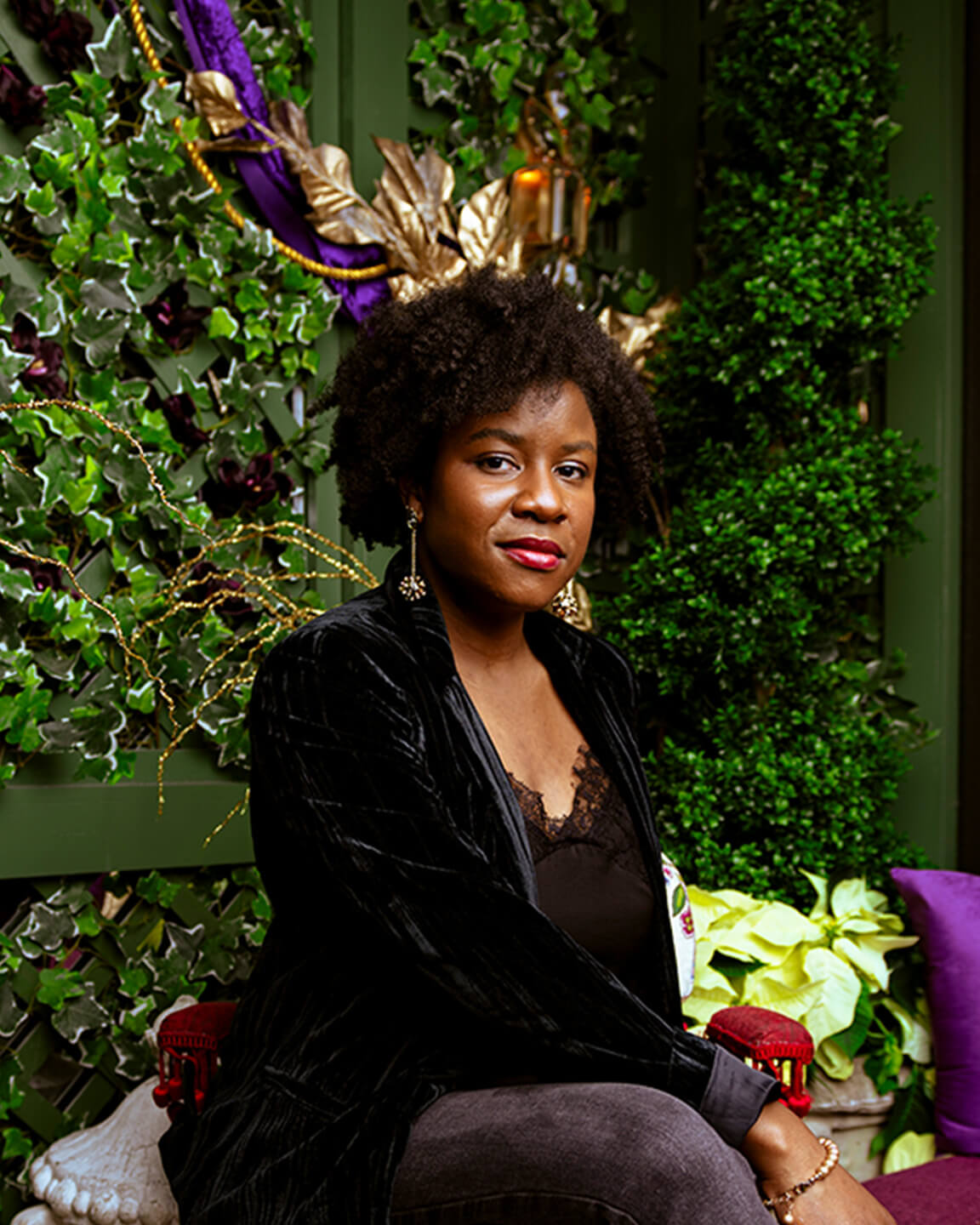Intro [00:00:00] Welcome to the Taylor Ten, a fast paced, ten minute deep dive into the minds of those shaking up the marketing world, bringing you the sharpest insights, boldest ideas and break through trends driving the industry forward. So tune in, get inspired, and stay ahead.
Naomi Ballah [00:00:17] Welcome everyone to the Taylor Ten. I am Naomi Ballah and I'm here with Nickey-Ann Burke, who is an executive coach, to learn as much as I can about generational differences. Just in case you're listening to this out of out of order, this isa week from the inauguration and also a week before Black History Month. And the theme for Black History Month in 2025 is all about African-Americans and labor. And it's really focusing on the significant contributions of black people, people of color to the workforce throughout history. So I thought, who better to speak to you than an executive coach who does this and really coaches other people in their career? So what actually decided to make you start coaching?
Nickey-Ann Burke [00:00:57] Hi there. So much for having me. I'm so excited to chat with you. So my professional background is in human resources. I started in recruiting and then talent development. And when you're a recruiter, you're helping people think about "what do I want to create for myself" professionally? And itfelt like a natural extension just from the conversations that I was having toto pursue coaching and to help people craft those stories for themselves.
Naomi Ballah [00:01:21] Was this something you always saw yourself doing?
Nickey-Ann Burke [00:01:23]As a human in the world, I love championing my friends and family and helping them come up with plans to do what they want to do. Probably I'm better at that for other people than myself. But it wasn't until the last three years of actually investing and learning what coaching. I was going through an intensive program and really seeing the value and impact that it can have on people, particularly people of color, that it felt like it was bringing both the passion and years and years of experience that I had amassed, coupled with this newfound skill set.
Naomi Ballah [00:01:53] Now that you've been doing it for a while, both personally and now professionally, do you see any differences of how generation's approach working styles and like just their approach to management or even like climbing the corporate ladder? Have you noticed any things that are like, you know, very different between boomers and millennials and Gen Zers?
Nickey-Ann Burke [00:02:13]The one thing I will say is that millennial managers are based on the research, some of the most sought-after managers, which is a great thing for us. The reasons for that is because millennials tend to be based on their generation much more sort of aware of well-being, and they really kind of usher in this work life balance experience. And that's really attractive for other millennials and younger generations like Gen Z, right? It does then create a lot of pressure for a millennial manager, right? Because you as a manager are trying to get all of the things done and caretaking for people. So they sort of created this like really interesting shift in what it means to lead and what it means to show up, which is amazing in terms of cultural approach and creating more on a team. But it does create a bit of pressure for millennial managers themselves. And the thing that I tell my clients all time is we all need each other, right? So how do we think about leveraging the strengths that each generation brings and also just kind of navigating communication differences and preferences? And then there's also just the intersectionality of all of that. There's generational differences, and then there's racial differences of ethnicity differences, gender differences, and how that all impacts how we communicate and how we show up with each other.
Naomi Ballah [00:03:34] No, I love that. And that's like a really great segue because I could imagine. And let me know what you think like that. There's like nuances. Once you start adding racial differences, I would assume that there's like an influx of more millennial black executives more than ever now in creative spaces, marketing spaces. You said a little bit about how it affects women. Is there anything that you would think that's specific to black executives and people of color?
Nickey-Ann Burke [00:04:02]I would say the theme that comes up most in my work and this is part anecdotal and this is also fueled by like research, right? So there is this sentiment of just the load and how people of color kind of navigate that load.There is a really interesting paper that was released by Harvard Kennedy School last July and that is specifically about the impact of white colleagues on black women at work. There's also some really interesting articles about why black women seem to be leaving corporate and pursuing entrepreneurial ventures.And a lot of that is tied to burnout in terms of the volume of work, but then also just the exhaustion of having to navigate corporate structures and spaces that aren't necessarily right size for you as a person or your identity. And I think now that people have more and more choices. In terms of what they can do career wise people again, because younger generations might naturally feel like more empowered or be more aware of the different choices. They're really taking their power back in some instances and thinking about like, well, what do I actually want and where can I get that versus maybe older generations feeling like this is the system, I've got to conform and adapt. Let me figure out, you know, what to do with it to be successful in the traditional pathway.
Naomi Ballah [00:05:27] Somewhat tied to this, like, what is it like? You hear all these buzzwords, generational differences and work life balance and all these things and like one that I have been hearing so much lately, particularly as someone who's emerging as an executive at this level, is like imposter syndrome and like kind of like really stepping out of that, like disregarding that or leaning into it and not being afraid of it. Like, what is this imposter syndrome to you? And like, do you see it show up differently in black women and black executives?
Nickey-Ann Burke [00:06:00] Simply for me, imposter syndrome is just kind of a negative self-talk. And those moments when you feel like you don't really believe in yourself or you don't really belong in the space that you're in, and we all have that right just to different extents. I would say that specifically for people of color and black woman, the way that I see it show up is particularly in moments where you're a little bit out of sight, out of your comfort zone, like maybe you area new manager or maybe you're leading a meeting and you don't like public speaking. Wherever there is a situation where you are sort of on stage, so to speak. And I think that those moments are particularly vulnerable for black women because we're also carrying this perception of us, right? So you already have to do the thing and do the thing well, but then you're also maybe supe rhyper sensitive about how it's going to be perceived and, you know, how are people going to be viewing you. And that's in terms of what you're saying, sometimes that can be depending on the person and physicality. What do I wear?How is my hair all of this sort of additional load that I think if you are nota black woman or a person of color, you can sort of not really understand how much someone is kind of bringing to you just doing the thing. And so the thing that I work with clients on is instead of focusing on this as a new thing and this is scary, how do you sort of celebrate the journey of getting to the fame and remembering that you've earned that the moments and you don't love public speaking, Right? I don't know that many people that are like, like me to you get me to the microphone. So there's always going to be a sense of nerves. And so it's not about it going away. It's about how you how you take the fear and incorporate it into what you're doing. But doing that from a place of knowing that you earned opportunity and knowing that you belong where you are. And the last thing I would say on that is, you know, I work with clients a lot not contorting themselves or conforming, but adapting to the moments, right? I think now more than ever, we need people to show up and be themselves and stand in who they are and knowing that they can do that without compromising themselves and their identity.
Naomi Ballah [00:08:21] One last question. You know, the last week and week and a half has been tough and there's been so many different, you know, rollbacks and DEI. And there's some companies who are standing firm and then some companies, you know, who are doing about face. And there's some that are being mum. Like what is the word of advice to black professionals who may not be in a welcoming environment and just trying to get by and just try to they can't afford to like quit their jobs because their job is changing their position on DEI. What's what's your advice to them?
Nickey-Ann Burke [00:08:52] Man, that is such a brilliant question and very apropos. I would say that for those folks and for all of us, I would ask say we turn the noise down a little bit. This is a very overstimulating time and we tend to naturally inundate ourselves with news and tweets and all of that. And I would say that it's more important now, more than ever, to think about where you'd like to be by the end of the year and what is within your sphere of control to get you there. And I know that that sounds very like squishy and aspirational, but, you know, in times of great transition and change, it's important to think about what you're going to use that to create within yourself. And so those are things that we can't change right now. Right? But what where are you and what who do you want to be and what are some steps you can take to get you there? I think now more than ever, it's more important to think about that.
Naomi Ballah [00:09:52] Thank you again so much. I really appreciate you contributing to the Taylor Ten.
Nickey-Ann Burke [00:09:56] Thank you for having me.







.png)
.png)
.jpg)
.jpeg)
.jpg)

.jpg)
.jpg)


